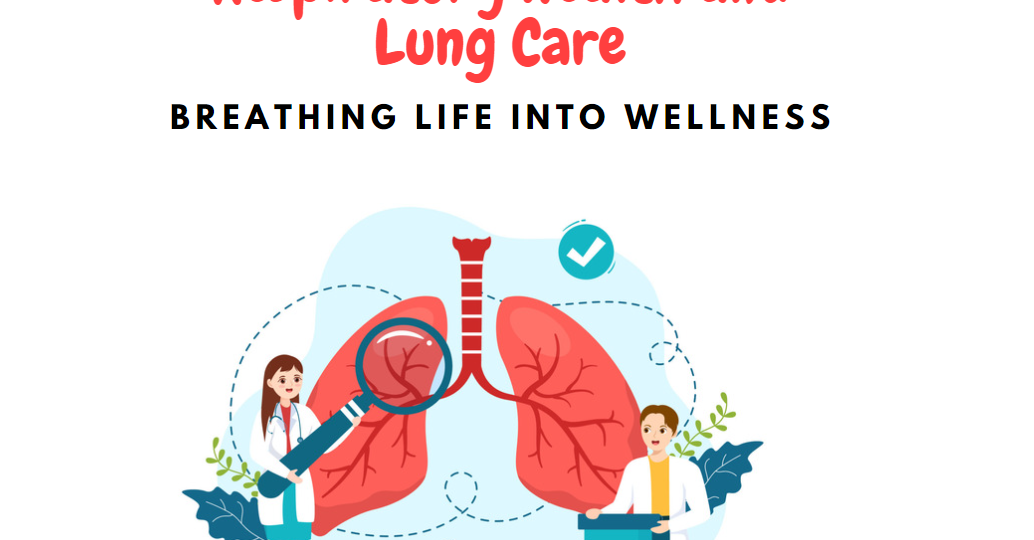Breathing Life into Wellness
The human respiratory system is a remarkable and intricate network responsible for delivering oxygen to the body’s cells while expelling carbon dioxide, a waste product of metabolism. Maintaining good respiratory health is essential for overall well-being and quality of life. In this article, we will explore the significance of respiratory health, the factors that affect it, and the steps one can take to ensure optimal lung care.
Understanding Respiratory Health
Respiratory health refers to the proper functioning of the lungs and the airways that facilitate the exchange of oxygen and carbon dioxide. Healthy lungs are vital for maintaining adequate oxygen levels in the bloodstream, supporting physical activities, and promoting overall vitality. Poor respiratory health can lead to conditions such as asthma, chronic obstructive pulmonary disease (COPD), lung infections, and even lung cancer.
Factors Affecting Respiratory Health
- Air Quality: The quality of the air we breathe has a direct impact on lung health. Pollution, allergens, and irritants in the air can damage lung tissues and trigger respiratory issues.
- Smoking: Smoking is one of the most significant contributors to respiratory problems. It damages the airways, reduces lung capacity, and increases the risk of lung cancer and other respiratory diseases.
- Physical Inactivity: Regular physical activity improves lung function by enhancing the efficiency of oxygen exchange. Sedentary lifestyles can lead to weakened lung capacity.
- Diet and Nutrition: A balanced diet rich in antioxidants, vitamins, and minerals supports lung health. Certain nutrients, like vitamin C and E, have protective effects on lung tissues.
- Occupational Hazards: Exposure to harmful substances such as asbestos, coal dust, and chemicals can lead to respiratory issues, especially in certain work environments.
Tips for Lung Care
- Avoid Smoking: Quitting smoking is the single most effective step towards improving lung health. It allows the lungs to repair themselves over time.
- Regular Exercise: Engaging in regular physical activity strengthens the respiratory muscles and improves lung capacity. Activities like brisk walking, swimming, and cycling are excellent choices.
- Healthy Diet: Consume a diet rich in fruits, vegetables, whole grains, and lean proteins. Omega-3 fatty acids, found in foods like fatty fish, have anti-inflammatory properties that benefit lung health.
- Stay Hydrated: Proper hydration helps maintain the thin mucus lining in the airways, making it easier to clear away irritants.
- Breathing Exercises: Practicing deep breathing exercises can enhance lung capacity, reduce stress, and improve overall respiratory function.
- Protect Against Pollutants: Minimize exposure to pollutants by staying indoors during high pollution days, using air purifiers, and wearing masks when necessary.
- Regular Check-ups: Periodic visits to a healthcare professional can help detect respiratory issues early and manage them effectively.
Conclusion:
Respiratory health is a cornerstone of overall wellness. By adopting a proactive approach to lung care through healthy lifestyle choices, individuals can reduce the risk of respiratory diseases and enhance their quality of life. Whether through regular exercise, avoiding smoking, or maintaining a balanced diet, every effort made towards respiratory well-being contributes to a healthier and more vibrant life. Remember, healthy lungs mean breathing life to the fullest.

















